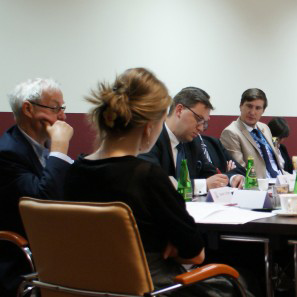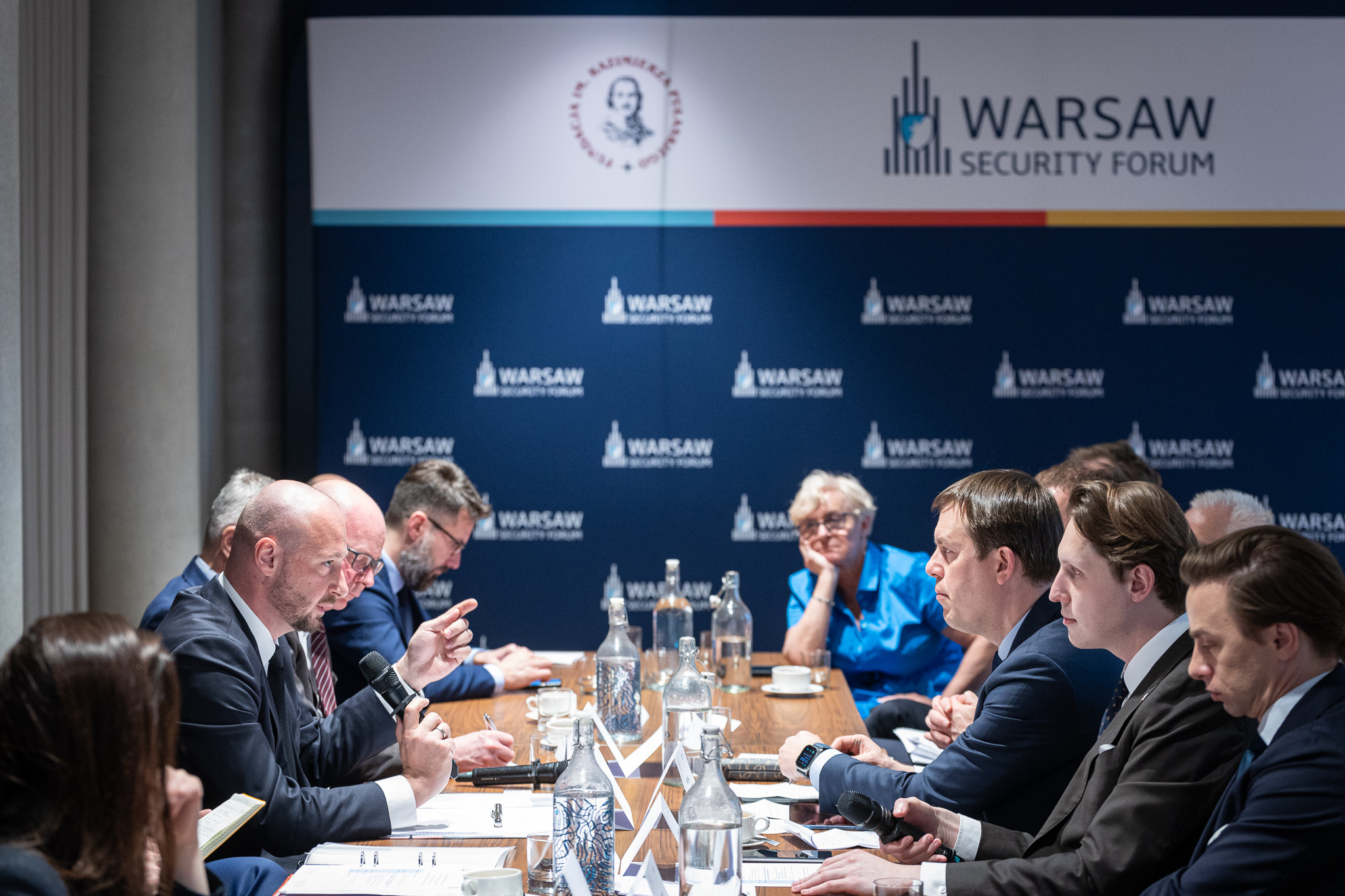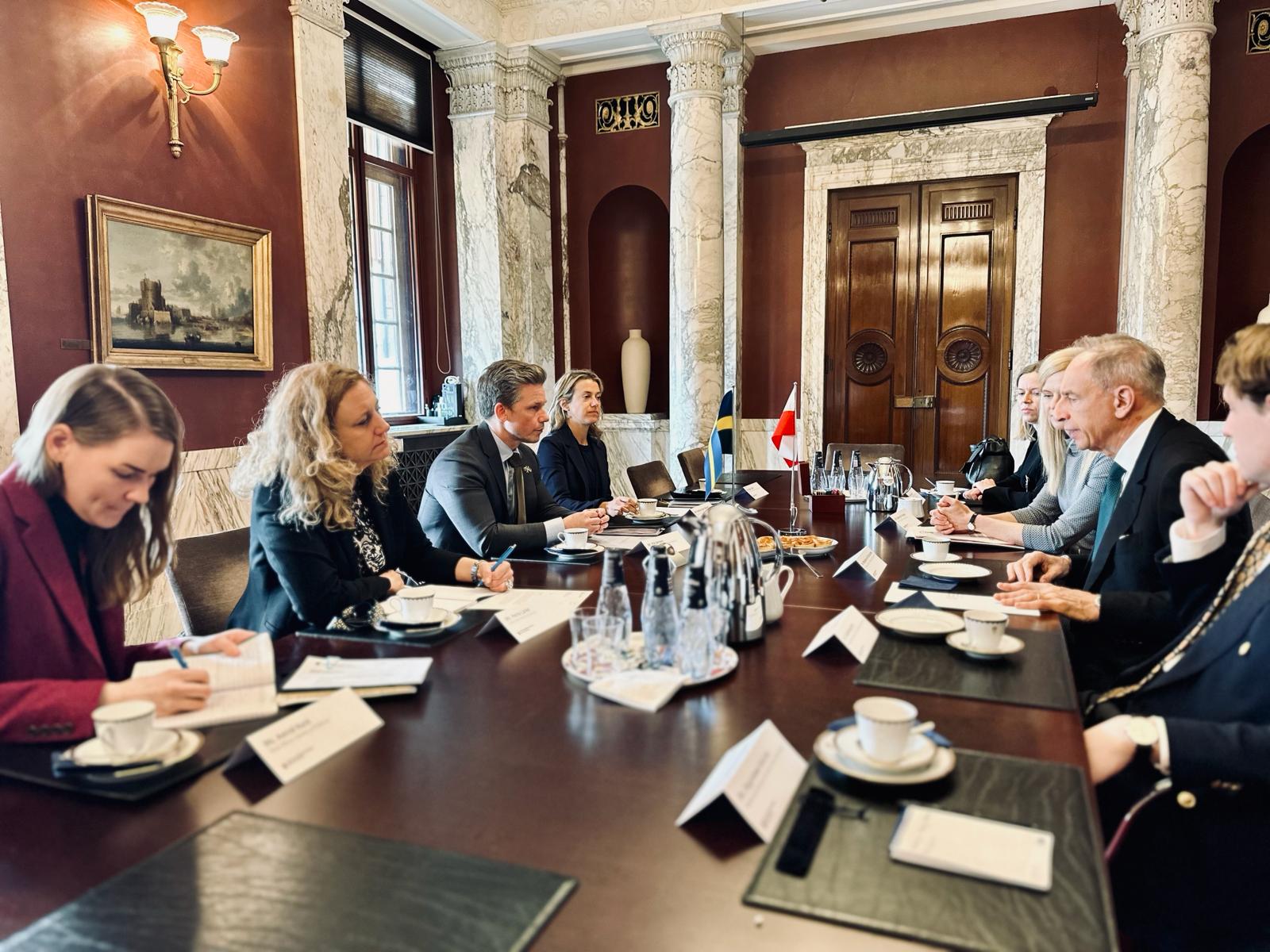Discussion on the visegrad group after crimean crisis
On June 13, 2014, the Casimir Pulaski Foundation held a conference entitled “European Security after Crimea: a V4 Perspective”, which was organized jointly with the German Council on Foreign Relations (DGAP) and the International Visegrad Fund within the “Central European Perspective. Integration Achievements and Challenges of the V4 States after 10 years in the EU” project. It was also the launching conference of the “Road to Warsaw Security Forum 2014” project. The main subject of the discussion was the current situation of the Visegrad Group member states 10 years after their accession to the European Union. The event was held under the Chatham House rule. Among notable guests of the Casimir Pulaski Foundation were the representatives of numerous Embassies, the National Security Bureau, the German Council on Foreign Relations, the Czech Association for International Affairs, the National Defence University in Warsaw, the Polish Institute of International Affairs, the Center for Eastern Studies and the experts of the Casimir Pulaski Foundation.
From the very beginning the participants discussed the Visegrad Group policy in reference to the Crimean crisis and the Russian-Ukrainian conflict. From the Polish perspective, the most important security issues regarded the military. It was emphasized that Russian policy seems to be a real threat for NATO border states. Under such circumstances, the Polish government decided to raise military expenditures from the current 1,95% to 2% of GDP in order to accelerate the modernization of its Armed Forces. The Polish participants pointed out that Poland is the only country in the V4 strongly focusing on security issues. The guests underlined the differences between policy of the V4 member states. Furthermore, an important matter discussed was a pro-Russian attitude of the Hungarian government and its policy concentrated on trade relations.
Another significant issue was the enlargement of the Eurozone, especially in reference to the V4 countries. Common currency could have a strong impact on strengthening economic relations between the V4 countries and Germany – their most important trade partner. The participants discussed the opportunities and threats associated with complicated relations amongst the V4 member states, both with Russia and Germany. The differences between these four countries are visible, however solidarity and cooperation of the V4 as a whole might significantly improve their position in Europe.
The last subject concerning V4 itself was the institutional aspect of the grouping. The participants agreed that non-formal meetings are sufficient to solve most of the region’s current problems. Moreover, the Visegrad Group as an institution could strengthen the EU’s regionalization process. It seems that the current position of the V4 is as strong and efficient as the domestic institutions of its member states.
The final issue discussed was concerning potential future conflicts. According to some statements, the European Union should focus on the Eastern Partnership and treat as a priority the strengthening of countries threatened by Russia. The EU’s and NATO’s next step should be enlargement, which is the only way to ensure security for smaller countries. On the other hand, different attitudes towards Russia should be taken into consideration, even among the V4 members. The business-focused approach of the Czech Republic and Hungary is not well perceived by Polish experts. Therefore, it seems that the greatest challenge for the Visegrad Group is deepening future cooperation between its four member states.
SHARE THIS STORY ANYWHERE YOU LIKE
SHARE THIS STORY ANYWHERE
WSF Weimar Triangle Parliamentary Delegation Visit to Washington D.C.
On 15-17 of April 2024, the Casimir Pulaski Foundation and the Warsaw Security Forum have dispatched an advocacy mission to Washington D.C. to bolster support for the passage of the critical U.S. $60 billion aid package to Ukraine. The senior leadership of the Casimir Pulaski Foundation was joined by three members of national parliaments from Germany, France and Poland.
Poland-Sweden Strategic Dialogue
The Head of the National Security Bureau and the Swedish National Security Adviser met in Warsaw: Poland-Sweden Strategic Dialogue Highlights Shared Commitment to Regional Security.
High-level delegation to Stockholm
Last week Warsaw Security Forum organized a high-level delegation to Stockholm, to hold ministerial-level meetings. Their aim was to discuss the security situation in the region and the preparations for this year's edition of the #WSF2024.



